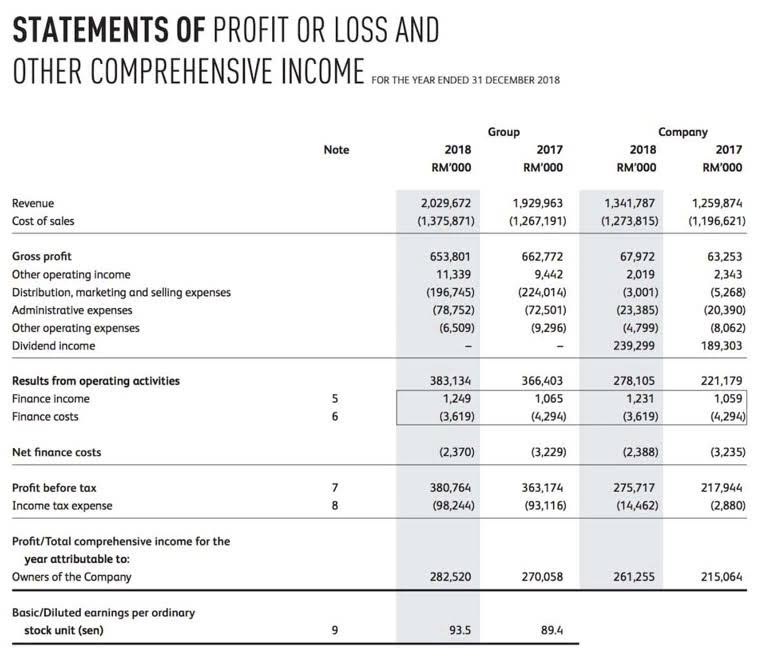
This could lead to an increase in customer satisfaction, as customers have more control over the payment process. Additionally, by providing customers with more payment options, businesses may be able to increase their realization principle sales. For instance, if a company sells a product on credit, the revenue from that sale is realized and recognized at the time of the sale (when the product is delivered), not when the payment is eventually received.
Key Principles of Realization Accounting
- Many expenses, however, can be related to periods of time during which revenue is earned.
- The exchange-price (or cost) principle requires an accountant to record transfers of resources at prices agreed on by the parties to the exchange at the time of exchange.
- One problem with this assumption is that the monetary unit is presumed to be stable over time.
- Our mission is to empower readers with the most factual and reliable financial information possible to help them make informed decisions for their individual needs.
- The company must satisfy each performance obligation by providing the goods or services to the customer.
- For example, the monthly salary paid to an office worker is not directly related to any specific revenue event.
Firms should not recognize gains until they are realized through sale or exchange. Period costs are costs not traceable to specific products and expensed in the period incurred. The Realization Principle is a significant financial concept as it specifies when revenue from business operations can be recognized or recorded. For example, if a customer has a history of non-payment or if the customer’s creditworthiness is in question, the company may not be able to assure collectability.
Subscriptions With Fulfillment Obligations
International Financial Reporting Standards (IFRS), which are used in over 140 countries, also incorporate the realization principle but with a slightly different approach. IFRS focuses on the transfer of control rather than the transfer of risks and rewards, which is a key aspect under GAAP. This means that under IFRS, revenue is recognized when the customer gains control of the goods or services, which may occur at a different point in time compared to GAAP. This distinction can lead to variations in the timing of revenue recognition, impacting financial statements and potentially influencing business decisions. Realization accounting is grounded in the principle that revenue should be recognized only when it is earned and measurable.
How does the realization Principles of Accounting affect income reported on a company’s balance sheet?
The materiality principle of revenue recognition dictates that a company discloses information that is material to the financial statements. According to the realization principle, the revenue is recognized at the time of the sale. The realization and matching principles are two such guidelines that solve accounting issues regarding the measurement and presentation of a business’s financial performance. For one, the principle and its corresponding ASC 606 framework give CFOs and accounting teams the tools to accurately portray their companies’ financial performance and health.

When it comes to companies that utilize usage billing, revenue is generally recognized as customers use the services, reflecting the actual usage over time. This method aligns revenue recognition with service delivery and is often based on a formula that estimates the expected revenue as the service is consumed. Deferred revenue represents unearned revenue that a company has received but not yet recorded on its income statement. Companies also frequently tailor their pricing, sales, and marketing strategies based on the information found in their financial reports. When executives are confident in their organization’s revenue recognition processes and reporting, they can make informed decisions in other business areas. Comparing the realization and accrual basis of accounting reveals distinct differences in their approaches to financial transactions.
- Despite all the potential complexities, businesses must recognize revenue according to established industry standards to stay legally compliant and report their financials accurately and transparently.
- For example, many retailers, Wal-Mart for example, have adopted a fiscal year ending on January 31.
- Revenue is recognized when the earnings process is essentially complete (books delivered) and there’s a reasonable expectation of payment, not necessarily when cash is collected.
- This ensures that the rightful amount due is collected before the goods are transferred.
- Advanced techniques in realization accounting are essential for businesses dealing with complex transactions and financial instruments.
- Auditors pay close attention to the realization principle when deciding whether the revenues booked by a client are valid.
What is the separate entity concept?
We can see from the FedEx financial statements that the company’s fiscal year ends on May 31. The Campbell Soup Company’s fiscal year ends in July; Clorox’s in June; and Monsanto’s in August. The timing of expense recognition The matching principle implies that a relationship exists between expenses and revenues.

- In the United States, the Internal Revenue Service (IRS) requires businesses to follow the realization principle for tax purposes, ensuring that income is taxed when it is realized.
- Proper revenue recognition affects the income, balance, and cash flow statements.
- For certain expenses, such as costs of acquiring or producing the products sold, you can easily see this relationship.
- For example, the economic activities of a sole proprietorship, Uncle Jim’s Restaurant, should be separated from the activities of its owner, Uncle Jim.
- Therefore, they measure a depreciation expense resulting from the consumption of those assets by the historical costs of those assets.
- The terms of the sale dictate that RetailHub Stores will pay the amount in 60 days after delivery.
In accounting, recognition means to formally report an event in the financial statements. For example, Uncle Joe buys a cup of lemonade from you, Uncle Joe says he has no money to pay you at the time but he promises he will pay next week when he comes back to visit. Uncle Joe buying lemonade from you is a recognized event even though no cash was exchanged. The purpose of the principle of revenue recognition is to ensure that a company recognizes revenue in a manner that accurately reflects its financial performance. By following this principle, a company can provide relevant and reliable financial information to its stakeholders, including investors, creditors, and regulators.

This approach ensures that financial statements reflect the true economic activities of a business, rather than merely recording transactions as they occur. By adhering to this principle, companies can provide a more accurate picture of their financial performance, which is invaluable for investors, creditors, and other stakeholders. The revenue recognition principle is a fundamental accounting concept that guides the recognition of revenue in a business’s financial statements.

Minding the GAAP Revenue Recognition Principles
In this case, customers purchase and pay for games before they are released, and the company delivers the game to the customer upon its official release date. Plus, there is more consistency and comparability between different companies and industries. The articles and research support materials available on this site are educational and are not intended to be investment or tax advice. All such information is provided solely for convenience purposes only and all users thereof should be guided accordingly. 11 Financial may only transact business in those states in which it is registered, or qualifies for an exemption or exclusion from registration requirements. 11 Financial’s website is limited to the dissemination of general information pertaining to its advisory services, together with access to additional investment-related information, publications, and links.
The Core Principles of the Realization Concept
For example, a company may realize revenue when it delivers goods to a customer and receives payment, or when it provides a service and the client settles the invoice. In accounting and finance, “realization” is a concept that pertains to the point at which revenue https://www.bookstime.com/ (or income) is considered to be recognized and earned, regardless of when the payment is received. It’s an integral principle in accrual accounting, where revenue and expenses are recorded when they are earned or incurred, not necessarily when cash changes hands.